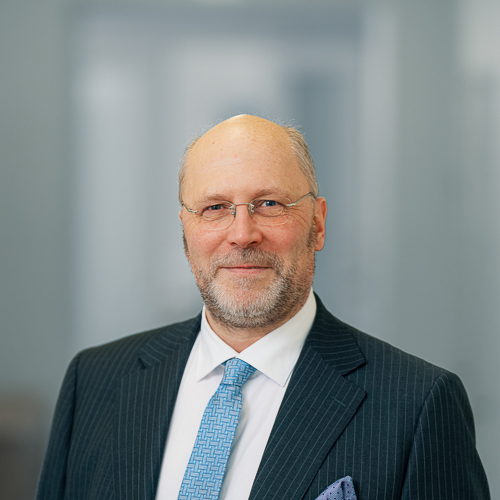In 2010, Evli Bank adopted the UN Principles for Responsible Investment. In the same year, Finland’s responsible investment association, Finsif, was established, and Evli had the honour of becoming one of its first Finnish asset manager members.
Of course, in many ways, responsible investing had already been evident in Evli’s wealth management prior to this. Already in 2007, Evli established a climate fund, which invested in the shares of companies operating globally in the field of environmental technology and protection, and which were in accordance with the principles of sustainable development.
As a wealth manager, Evli's ambition has always been to help clients achieve their ultimate goals. Increasing the value of investment assets is just one way to accomplish this. Wealth management cannot conflict with the client’s values, nor can one simply chase returns at any cost.
Many institutional investors had, and still have, a lot of investment exclusions in their policies that are based on principles they hold with strong conviction. Even as little as a decade ago, the notion of positive screening was still in its infancy. The adoption of the UN principles confirmed and formalized the actions taken so far and gave impetus to further development, both qualitatively and quantitatively.
Committing to the UN principles and joining with Finsif quickly increased Evli's dialogue with domestic and international investors those who were active in responsibility issues. Gradually, we saw how the breadth and comprehensiveness of responsible investing was taking shape. In addition to environmental issues, responsible investment should take into account social factors and good governance. This is how the ESG principles were formed, and they are now self-evident to almost everyone.
Responsible investing is comprehensive
Another important dimension of responsible investing also began to take shape quickly. We’re not talking about individual investment decisions but rather about the entire investment process: from the analysis of investment targets to their reporting. This has increased the need for transparency so that clients understand and are themselves able to assess the responsibility of the assets.
The development of responsibility and its rise in importance have not been straightforward. The positions of the investment target companies in terms of responsibility issues has varied. But much progress has occurred in making responsibility also to become a focus of companies' operations. Unfortunately, the progress in many developing countries still leaves much to be desired.
A key consideration has always been, how can responsibility be assessed or measured objectively and reliably? Various metrics have now begun to emerge, and data has been compiled, but not yet for very long periods of time. To form different scenarios and assess their quantitative effects is entirely a topic of its own. And predicting the future is itself still a difficult endeavour. Assessing the impact of one's own investment decisions or of the activities of the companies being invested in is a hot topic right now.
Continuous development is a part of responsibility
Global warming is seen as one of the biggest challenges on our planet, and people expect and demand action also from investors. How can the development trajectory be influenced in a timely and adequate manner? This is an issue which also affects everybody in the capital markets.
Perhaps the most significant lesson of the past decade has been that we, as people and as investors, are all in the same boat. Alone the world cannot be changed. It requires cooperation, common goals and joint efforts in order to bring about change for the better.
The key principles of responsible investing must be striving to make progress, respect for others, continuous learning and honesty. Evli stands behind these words. The world is not done yet and responsible action requires perseverance.
Evli celebrates 10 years as a UN PRI signatory >
Responsible investing at Evli >
Evli Principles for Climate Change >
UN Principles for Responsible Investing >













